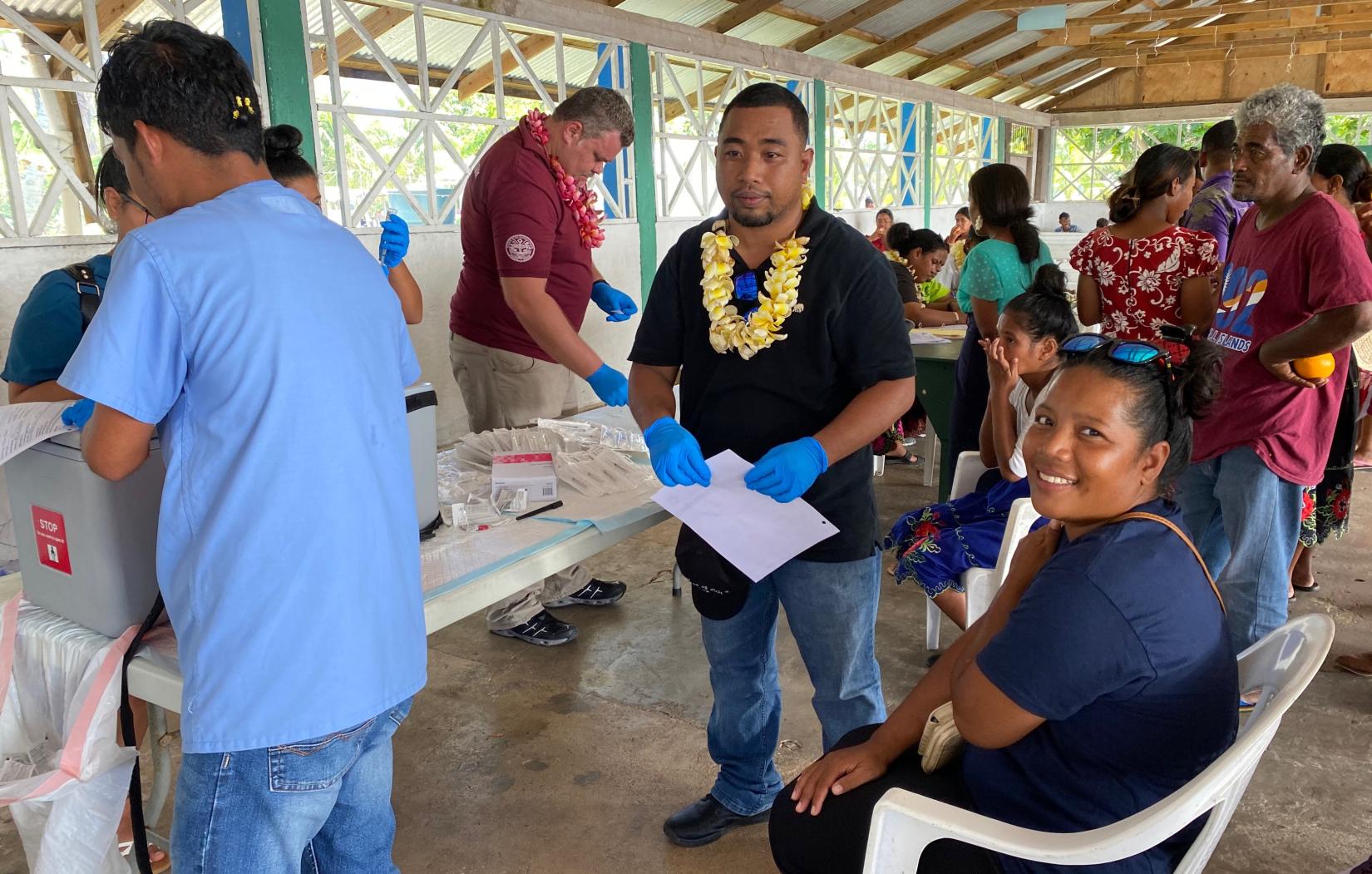Republic of Marshall Islands

The United Nations in Marshall Islands
The Republic of the Marshall Islands is an equatorial nation of 29 scattered coral atolls and five islands in the Central Pacific Ocean. RMI is a former Trust Territory of the Pacific under United States Administration. Since 1986, the relationship between the two countries has been defined by the Compact of Free Association whereby the U.S. provides annual payments and defence in exchange for continued U.S. military use of the Kwajalein Atoll.
The legacy of U.S nuclear testing in RMI has adversely affected human security, public health, and environmental safety and caused the loss of customary land and cultural heritage. RMI is highly urbanised with around three quarters of the country’s 58,791 people (World Bank, 2019) resident in the two urban centres of the capital Majuro and Ebeye, the most densely populated island in the Pacific.
There is incomplete analysis of hardship, but basic needs poverty and hunger is rising. The young urban poor are among the most marginalised with dependence on the cash economy, but fewer social welfare protections. The economy is weak and highly reliant on development assistance. RMI’s rapid population growth and the contamination of its natural environment have made subsistence farming and fishing unviable for the vast majority of Marshallese.
UN presence in the Republic of Marshall Islands
The UN has been present in RMI since 1984, with 11 agencies implementing programs: IOM, ILO, UNDP, UNESCAP, UNESCO, UNFPA, UNISDR, UNOCHA, UNODC, UN Women and WHO.
Development goals and objectives
The UN Sustainable Development Cooperation Framework (UNSDCF) 2023 - 2027 is a five-year strategic framework that outlines the collective response of the UN system to the development priorities in 14 Pacific Island countries and territories, including RMI, and supports governments and peoples in the Pacific to advance a localised response to the global 2030 Agenda for Sustainable Development. The UNSDCF 2023-2027 focuses on strengthening partnerships to support countries in four interlinked areas of Planet, People, Prosperity, and Peace, to ensure that no one is left behind, that people are equal and free to exercise their fundamental rights, to promote gender equality and peace, and to enable nations and their communities to become resilient to existential threats allowing them to live in harmony within the blue continent.

